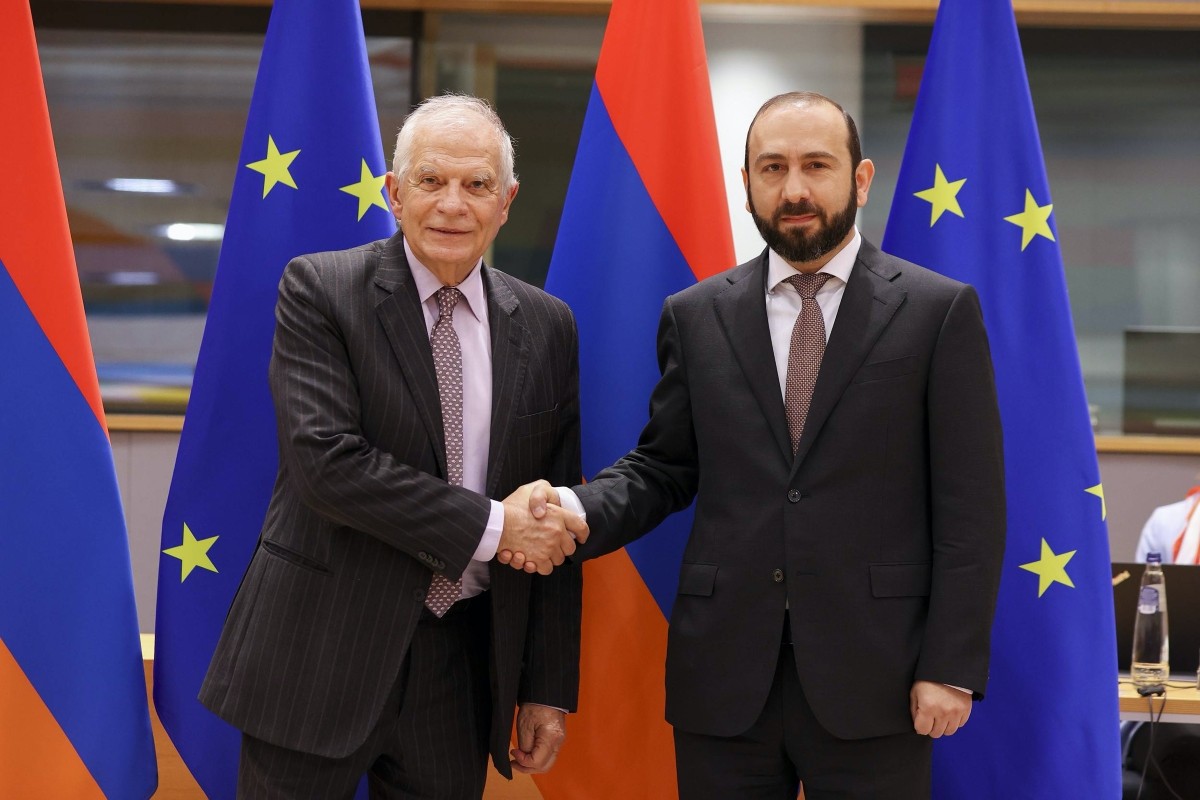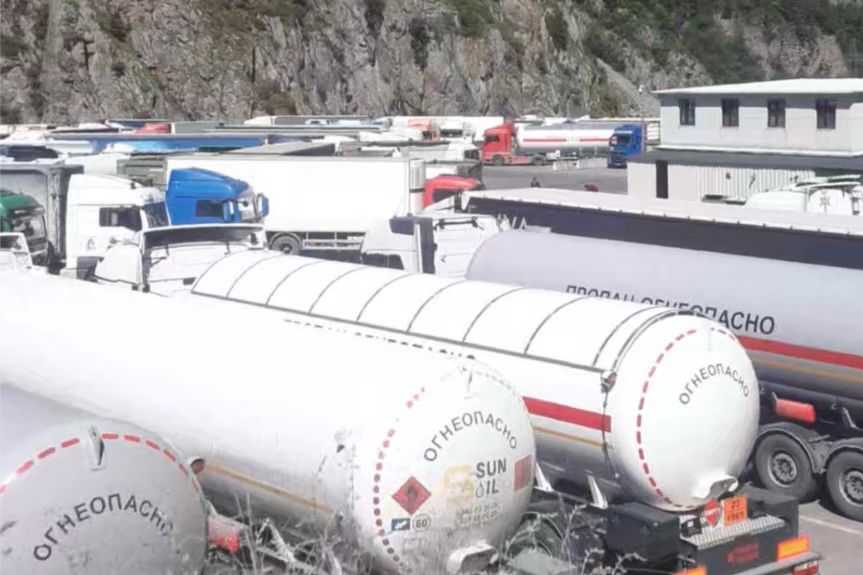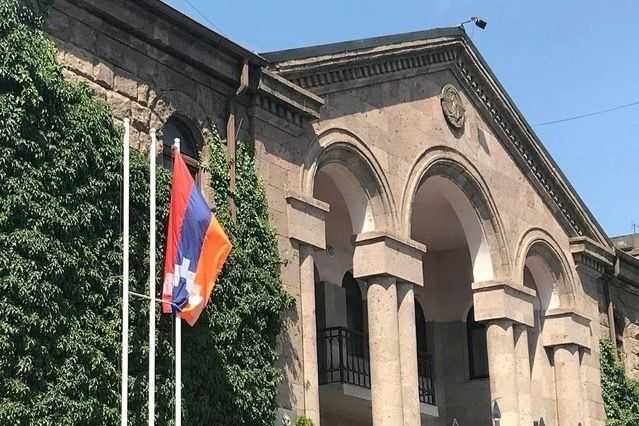
The EU has announced an ‘ambitious’ partnership agenda with Armenia, to include visa liberalisation, trade, and security cooperation.
On Tuesday, the EU’s High Representative for Foreign Affairs, Josep Borrell, announced the partnership agenda in a joint press briefing with Foreign Minister Ararat Mirzoyan in Brussels.
‘This decision sends a strong signal of our mutual interest in a new strategic phase in our relations, and it will provide a clear roadmap and a vision for the way forward,’ said Borrell, adding that EU–Armenia relations ‘are stronger than ever.’
Borrell summarised the results of the fifth EU–Armenia Partnership Council meeting, during which, he said Brussels and Yerevan had ‘acknowledged that there is room to unlock the full potential’ of the Comprehensive and Enhanced Partnership (CEPA) Agreement.
The CEPA agreement came into force in March 2021, months after the Second Nagorno-Karabakh War.
During the briefing, Borrell also spoke about launching visa liberalisation talks with Armenia and strengthening its trade, energy, connectivity, and aviation safety infrastructure.
He also announced that the EU would help to decommission the Metsamor Nuclear Power Plant ‘while improving nuclear safety’.
Borrell noted that earlier that day, the European Commission announced an additional €5.5 million ($5.9 million) in humanitarian aid to support refugees from Nagorno-Karabakh in Armenia.
[Read more: The last bus out of Nagorno-Karabakh]
In his turn, Mirzoyan stated Armenia’s willingness to deepen ties with the EU to realise the ‘aspirations of our citizens and for a more prosperous South Caucasus’.
Security and defence
During the briefing, Borrell also touched on security and defence ties with Armenia.
Since the end of the Second Nagorno-Karabakh War, Armenia has been moving away from its traditional military ally, Russia, in favour of diversifying its defences and security ties with the West, chiefly France.
Borrell expressed the EU’s ‘total commitment’ to enhancing cooperation in security and defence.
‘We will build our dialogue on foreign and security policy in the coming months,’ he said.
Last November, the EU Council of Foreign Ministers agreed to ‘explore’ the possibility of providing ‘non-lethal’ support to Armenia as part of its military assistance programme, which Armenia had denied before.
Following a two-day war between Armenia and Azerbaijan in September 2022, the EU launched a civilian monitoring mission on the two countries’ shared border with 138 unarmed observers. In December 2023, the EU agreed to increase the number of observers to 209.
Borrell’s statements came following an escalation between Armenia and Azerbaijan; on Tuesday, four Armenian soldiers were killed in an Azerbaijani ‘revenge operation’ which came after an Armenian soldier apparently fired at and wounded an Azerbaijani soldier.
Azerbaijan carried out its retaliatory strike despite Armenia vowing to investigate the incident and hold those responsible accountable.
Read more: Four Armenians killed in Azerbaijani ‘revenge operation’]
Borrell called the wounding of the Azerbaijani soldier ‘deplorable’, but criticised Azerbaijan’s response as ‘disproportionate […] ignoring the announcement by the Armenian Minister of Defence that this incident will be fully investigated’.
The EU diplomat said that the incident illustrated the ‘urgent need for the distancing of forces’, which the EU ‘has been advocating for a long time.’
Azerbaijan condemned Borell’s comments as ‘baseless’.







